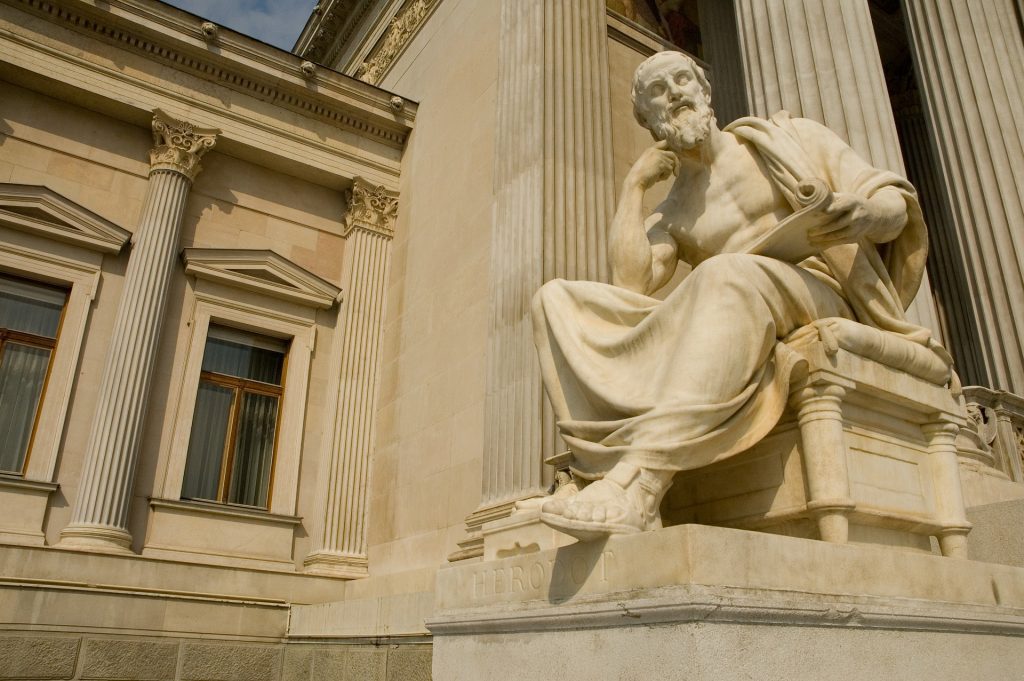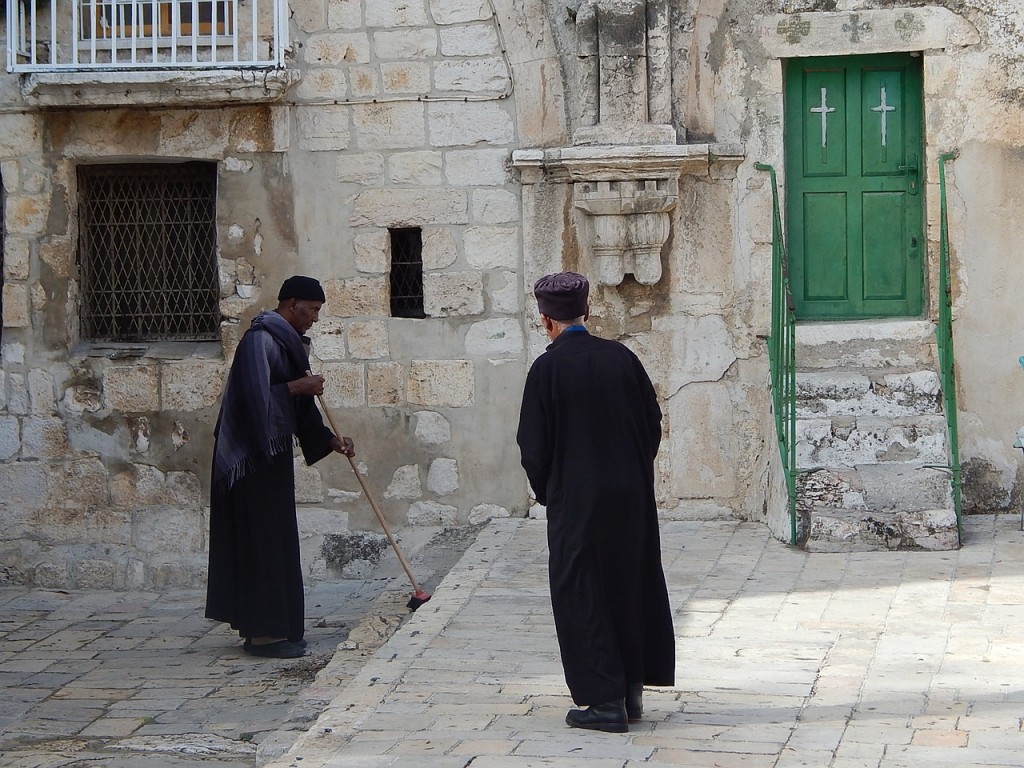Skip to content
There are times in life that we don’t feel qualified for a task, or we feel inexperienced to do a good job. We may have hesitations to take a step of faith and move into an uncertain future. This could be situations such as relocation, a change of career or a job, or ministering to others. We feel like tasteless water. We have looked at others around us and thought that we don’t measure up to their level of maturity and richness in the Lord.
Now there were set there six waterpots of stone, according to the manner of purification of the Jews, containing twenty or thirty gallons apiece. Jesus said to them, “Fill the waterpots with water.” And they filled them up to the brim. And He said to them, “Draw some out now, and take it to the master of the feast.” And they took it. When the master of the feast had tasted the water that was made wine, and did not know where it came from (but the servants who had drawn the water knew), the master of the feast called the bridegroom. And he said to him, “Every man at the beginning sets out the good wine, and when the guests have well drunk, then the inferior. You have kept the good wine until now!” John 2: 6-10

Jesus knew the lack that the hosts were experiencing and gave the servants the instructions to fill the waterpots with water. The servants were probably in perplexity as to what was the point of this exercise since lack of water was not the issue at this wedding, but Jesus had a different plan. Jesus didn’t do magic but a miracle! He didn’t speak wine into existence, but He used what was available to do the miracle of turning water into wine.
Jesus expects us to offer Him what we do have instead of making excuses for what we don’t have. He already is aware of our lack and our need, but we will get tested to offer Him what doesn’t seem to be sufficient or adequate. He can touch what we offer Him and transform it for His purpose. Just as the tasteless and colorless water was turned into rich and colorful wine, He can touch our lives to add richness to it. We don’t have to add food coloring to make ourselves look rich and mature, but in honesty and humility we can offer ourselves and our situations to Him, so He can touch them and transform them.
Our lives are supposed to be miraculous not magical! That means that we always come to the Lord offering ourselves, our efforts, our talents, or our time, and then we ask Him to touch it. He will do the supernatural work with our natural offering. He will change it into something that benefits the Kingdom and the people around us!
In the last devotional, I shared about Jesus declaring Himself as the bread of life. Salvation is the starting point for us to be fed spiritually by finding peace with God and obtaining peace of mind we all desire. However, there is more to our spiritual food than just the event of salvation.
Jesus said to them, “My food is to do the will of Him who sent Me, and to finish His work. John 4:34

The above scripture is in response to His disciples who were concerned that Jesus hadn’t eaten anything. Jesus chose to stay behind and did not go with the disciples to get food. While sitting by the well, He ended up talking to a Samaritan woman about her spiritual thirst. This encounter led her and her community to come to faith.
Obviously, Jesus needed food for the nourishment of his body. Hunger was a method that the enemy used to tempt Him in the desert when He was fasting for forty days. Jesus in this situation is speaking about a deeper spiritual reality rather than physical hunger. Jesus, the perfect man, had a need for spiritual sustenance that came from His obedience to the Father. He was being nourished and nurtured by the Father as he continually took steps of obedience to what the Father had asked Him to do.
Many Christians get disillusioned with their faith and wonder why they feel weak spiritually. Sometimes, we have a magical view of salvation and think if we have believed in the work of Jesus on the cross, then we should have continual peace and joy in life. As I shared earlier, salvation is the starting point and the foundation of our walk with God, but there is more to our victory than the event of salvation.
If Jesus needed to be obedient to the Father in order to be fed spiritually, then our obedience as a form of spiritual growth and sustenance is non-negotiable. Jesus knew the will of God had to be finished in His life. Is that a focus of your life?
If we are feeling weak, doubtful, or discouraged, think about the last few months in your life. Consider if you obeyed the Lord when He directed you or instructed you about something. Take steps towards obedience and experience being nourished by the Lord!
Food is an integral part of our lives. When we don’t eat, we get a headache, or we’re grumpy. Over long periods of time, lack of food makes us weak and malnourished. Having food on daily basis is the norm and not having it is against the norm. We also have spiritual hunger that needs to be satisfied and lack of spiritual food manifests itself through a variety of ways.
And Jesus said to them, “I am the bread of life. He who comes to Me shall never hunger, and he who believes in Me shall never thirst. John 6:35

The scriptures tell us that Jesus is the bread of life, and that He satisfies our hunger. What are we hungry for? And how does He satisfy that hunger?
Security & Peace
People are suffering with all types of anxiety disorders from mild to severe forms. Unfortunately, our young people are not exempt from anxiety either. Fear has gripped people for many reasons. The lack of connections with people has aggravated this issue even more because people have difficulty finding secure and reliable relationships that they can count on.
In addition, sin damages our internal world where we are not sure of ourselves. We may carry guilt, pain, shame, and self-rejection because of the past. There may be situations in our lives that we have never had the courage to share them with anyone because we are too embarrassed or too afraid to be judged.
We need communion with the God who created us to feel secure with our existence in this wide world and to have rest for our souls. Years ago in my sociology class, the professor shared that the number one desire of most people is to have a peace of mind.
Jesus made that possible by going to the cross for us. To know that our sins are forgiven and that we can lay down our burdens, guilt, and shame at the cross is the greatest gift we can ever receive. Money, education, intellect, or talent cannot buy us the peace of mind we so desire.
Salvation through Jesus’ cross is the foundation to a life that gives us peace of mind. It is the starting point to feeding our souls, but Jesus had more to say about his spiritual food. I will share about this in the next devotional.
One of the pitfalls to time management is overcommitment. Overcommitment has the illusion of power and significance, but it actually causes people to lose their power over managing their time. In those times, individuals are not able to be led by God anymore instead they are driven and pushed by schedules and commitments.
Recently, I had a conversation with someone who complained about working full time because her employer would not offer her a part time position. Additionally, she had agreed to take on heavy responsibilities at work, which will turn out to be a great source of stress for her. Then, somewhat confidently, she stated that she needs to claim God’s victory over this! I was surprised by her response because from my vantage point this looks like overcommitment. Trying to claim God’s victory over this type of situation, appears superstitious and presumptuous. Unfortunately, in time, this person will begin to feel guilty and stressed because she is not available for her family.
For which of you, intending to build a tower, does not sit down first and count the cost, whether he has enough to finish it— Luke 14:28
Here are a few things to think about to avoid overcommitments:
-
If the Lord is leading you to work part time and you know that with some sacrifices you can make the ends meet, then trust God for His direction. This is particularly important in situations with children at home.
-
As the above scripture states, Jesus told us to count the cost before we build something. If we jump on a so called “opportunity” because we feel flattered, or it provides a large increase in income, we may be building on sand. If we neglect to count the cost of taking on the commitment, we will have to pay for it by taking valuable time away from the Lord or the people in our lives to compensate for overcommitment.
-
Seeking the Lord for guidance does not guarantee a peaceful ride. The storms may still come, but, in those instances, we can claim victory because we have been building based on God’s principles and direction. If we just randomly claim victory, we are being presumptuous and will lead to disillusionment.
-
The consequences of overcommitment is not always seen in the short term. I am concerned for many marriages that operate on overcommitment. For years, things appear to be going very well for couples, but the long term consequences of overcommitment can affect the children and/or the marriage. Because people have not invested as much time in their families, when difficulties come or children leave home, the couples don’t find much interest in each other. A recent article stated that “gray divorce” is on the rise. These are individuals who have been married for decades but now they don’t find much in common with each other. Have our accomplishments become more important than those we love and cherish?
To steward our time well, it requires believing God and trusting Him with His direction and priorities. He will give us the time we need to accomplish everything He desires, and we don’t have to overcommit to make it happen.
Managing our time is an important aspect of our Christian growth and maturity. If we cannot manage our time well, chances are that we either live in chaos, something is being neglected, or we are not making progress. God has given us the confines of time to help us work within its boundaries. These boundaries force us to prioritize our goals and activities and, at the same time, maintain peace and order in our lives.
Be very careful, then, how you live—not as unwise but as wise, making the most of every opportunity, because the days are evil. Therefore do not be foolish, but understand what the Lord’s will is. Ephesians 5:15-17 (NIV)

Every day is a gift and opportunity from the Lord. When the sun rises, we are given a fresh brand new day that is meant to be lived out intentionally. The Lord through Paul tells us to be wise about our opportunities. We are instructed to be diligent and not to be lazy, but there is more to being wise than just being diligent.
There are many good activities and causes that we can be involved with, but we need to decide which ones we are supposed to commit to. According to the above scripture, the difference between a wise and unwise person is understanding the will of the Lord. A wise person has studied the Bible, consulted the Lord, and has unity with their spouse (if married) about their commitments and activities.
I am reminded of the parable of the virgins (Matthew 25;1-13). The difference between the wise ones and the foolish ones were that the wise ones kept the vision, were prepared, and expected the bridegroom’s arrival, but the foolish ones lost the focus, were unprepared, and fell asleep.
The passing of time and activities has a way of dulling our senses making us lose the urgency of the moment. We can get lulled by all the commotion around us and lose the vision of what our lives are all about. Sometimes we don’t see the value of what we accomplish in a day, so we decide there should be something better, more exciting, or more interesting that can be done with our time.
Lord, help us to know your will in regards to our time. How would you like us to use our time? Help us to hear your promptings above our own desires. Amen.
Time is God’s creation by ordering the sun and the moon to give us days and seasons of life. God stands outside of time but places the boundary of time around us. In order to function and interact with one another, we have quantified time in the form of clocks and calendars that signify the rules of engagement in a very busy world.
We use time as a form of measuring performance and evaluating history and science. We quantify time at the micro level to minute milliseconds to deviate one competitor from another, and then we evaluate it at the macro level to centuries and millennials to study physical and social sciences. We also create our own personal timetables to reach certain milestones of life because we recognize life is short.

In addition to all of the above, we live in a very busy culture that continually advertises things that can fill our time and our lives. They promise to make us feel important and help us to be happy. There are many voices that not only we are bombarded with, but our children are also impacted with. Therefore, it is important to sift through those voices and their demands to determine what is important in God’s economy of time.
There is a time for everything, and a season for every activity under the heavens: Ecclesiastes 3:1
In managing our time, it is important to evaluate the season of life we are in. Each season has its own demands, time constraints, and commitments. The culture and the media tells us that we can accomplish anything we want. We have various women’s journals that are full of articles about how a woman can be in good athletic shape, cook delicious home-made meals, be a great wife and mom, and have a demanding job. Some women shrug their shoulders and walk away quietly because they cannot measure up to this standard. Some people take on the challenge to prove that they can be super moms or dads by juggling many balls. Unfortunately, the children don’t make good juggling balls!
The scripture speaks about seasons because seasons are short and don’t last very long. For example, in hot Summer days, it feels like it is going to be hot forever, but the truth is that Fall is right around the corner. The weather will change again and there will be a day that we will miss the heat of Summer. If we remain in tune with the seasons, we can enjoy the peculiarities of each season better, and at the same time prepare for the next season ahead.
I will continue with this subject in the next devotional.
Then He charged them, saying, “Take heed, beware of the leaven of the Pharisees and the leaven of Herod.” Mark 8: 15
Jesus warned his disciples of the leaven of Herod. The leaven of Herod is an analogy to a political spirit. This spirit enters an environment and tries to cause division, form loyalties, and destroy churches. Political spirit uses manipulation, intimidation, and alliances as its method in achieving success.
The political spirit uses believers and church members to accomplish its goal. Some believers may have selfish ambitions that causes them to align themselves with those in power to ensure that they get a special treatment. Others may become political over the course of time because they get hurt and disappointed by those in authority. This leads them to seek out others who are discontent, and they develop an alliance against those in authority. There are also times that those in authority become political because they are intimidated by any type of opposition, so they intimidate others and seek out loyalists to defend their position.
Unfortunately, division is a commonplace in the body of Christ. There are churches that wind up splitting due to disagreements, and in other churches a mass exodus occurs when people are hurt, frustrated, or misunderstood.
In the current season, there is also a great danger for the church to get divided over who will be the next president. We need to be careful not to stir division in the body over the next presidential election. Our allegiance to Christ should overrule our differences in politics.
Moreover you shall select from all the people able men, such as fear God, men of truth, hating covetousness; and place such over them to be rulers of thousands, rulers of hundreds, rulers of fifties, and rulers of tens. Exodus 18: 21

The best solution to the current drama is to pray for our nation. Many of us are stressed about voting at the next election because we’ve had lack of Godly leadership for quite sometime. The current election exposes how low we have come in our standard of leadership.
Since neither of the candidates portray God’s standard, arguing who is the better candidate seems futile. In my opinion, we should discuss issues rather than the candidates. We can differ on solutions to some issues, but that’s ok. The beauty of the American democracy is that it gives us freedom to disagree without throwing rocks at each other.
While we should do our part and vote, we cannot forget that this too shall pass. We are closer to the end times than ever before. We are moving toward more tumultuous times. We need to strengthen our faith for tough days ahead and help others get established, so they won’t fall away when tough times come.
Then He charged them, saying, “Take heed, beware of the leaven of the Pharisees and the leaven of Herod.” Mark 8: 15
Jesus spoke on two different types of spirits that can affect the body of Christ. I wrote about the Leaven of Pharisees in the last two devotionals, and in this devotional I’ll share about the leaven of Herod.

In addressing the leaven of Herod, Jesus was speaking about political spirit. Political spirit is looking for power and position. Its strategy is to divide and conquer. It aligns itself with those in power and tries to eliminate those who seem threatening to its power base. Political spirit is partial and seeks out loyalty with those who are like-minded.
During Jesus’ ministry years, Herod Antipas, who was the son of Herod the Great, was in power. John the Baptist spoke out against Herod divorcing his first wife and marrying his brother’s wife (Herodias), so Herod Antipas imprisoned John the Baptist. Following a beautiful dance by Herodias’ daughter, Herod gave an open offer for anything she desired. Herodias manipulated her daughter and prompted her to ask for beheading of John the Baptist. Herod was obligated to follow through with his promise and gave orders for beheading of John the Baptist. (see Matthew 14:3-12).
John the Baptist was being perceived as a threat to Herod and to his unlawful marriage because John the Baptist called them to accountability. According to some records, Herod and his wife were seeking the title of king and queen. This was out of jealousy of Herod’s brother (King Agrippa) because he had this title. Herod and his wife were not successful in getting the title; they actually both thrown into prison due to the choices made in trying to get the title (according to Brittancia.com).
In the next devotional, I will continue with the subject of leaven of Herod (Political spirit) and how it manifests itself in today’s church.
Then He charged them, saying, “Take heed, beware of the leaven of the Pharisees and the leaven of Herod.” Mark 8: 15
Jesus told his disciples to be aware of the leaven among them because He knew the insidious nature of leaven and its subtle impact on His disciples. Jesus spoke clearly and in much detail about the leaven of Pharisees in Matthew 23:1-28. In the last devotional, I shared a few points from this passage. This devotional is the continuation on the leaven of Pharisees.

-
Verse 5 (Show offs): Their motive was visibility not service. They were not doing things as unto the Lord; they were doing it to get the applause and honor of man. Why do we do what we do? If no one ever finds out about what we did, would we still do it?
-
Verse 6 (Honor seeking): They enjoyed places of honor. They enjoyed people looking up to them and calling them by their titles. Do we find our significance in how people perceive us ? Do we need a title to feel significant or spiritual?
-
Verse 13 (Twisted gospel message): Jesus told His disciples that the Pharisees had no place in heaven, and they were stopping others from entering because they were self-righteous. In our society, this would translate into legalists and the lawless religious groups. Those who are legalistic, make people focus on the works and rules rather than a relationship. People can follow the rules and still not have a relationship with God. There is also the spiritually lawless group that focuses on compassion and grace apart from repentance. They do not teach the entire Bible and only give people partial gospel message. Both groups are self-righteous. One group is proud to do work for God and the other group is proud to be compassionate towards man apart from God’s standard. Both of those approaches are self oriented which will neither save people nor set them free. These type of religious people don’t have a real relationship with the Lord, and they are hindering others from being saved as well.
Are we self-congratulatory in our efforts and zeal? Do our efforts produce true fruitfulness or just making us feel spiritual? Do we portray grace as a cheap commodity? Do we convey Jesus to be a desperate man looking for any kind of follower without a true commitment to Him?
-
Verses 15 (New bondages): Religious people can get excited about seeing people saved and freed up. However, they begin putting new expectations on people causing oppression and offense in a new believer’s life. The religious people, who are supposed to help free up the believers, can create new man-made rules and expectation and place them under a carnal yoke! Do we create rules for others that are not necessarily based on the Bible rather than on our preferences and convictions?
Let’s be aware of the leaven of Pharisees by knowing our Bible and not getting influenced in a toxic atmosphere.
Then He charged them, saying, “Take heed, beware of the leaven of the Pharisees and the leaven of Herod.” Mark 8: 15
Leaven for the most part was considered evil. Jesus warned his disciples about the leaven of Pharisees and the leaven of Herod. By using this analogy, He taught his disciples to be discerning of the insidious nature of these two spirits among them.
In our modern day, one use of leaven is to make sour dough bread. Leaven becomes the starter or the instigator, and eventually permeates and ferments the whole though.
Jesus was referring to the fact that leaven has the ability to subtly poison people and gradually move them in a negative direction without one’s awareness. While the Pharisees and the Herod were not people’s role models, they still had the potency to influence people negatively. 
Jesus, in referring to the leaven of Pharisees, was speaking about a religious spirit that has a spiritual look. He was concerned for His disciples as well as all His followers, so He warns us not to influenced by this religious spirit and recognize it when we see it. Jesus shared some of the characteristics of this religious spirit in Matthew 23:1-28
-
Verse 3 (Actions not words): The pharisees’ words and actions did not match. They may have been great orators but considering how they conducted their lives, it did not hold up to their professed faith. Do our lives profess of our faith that we verbally proclaim?
-
Verse 4 (Oppressive rules): By their man-made rules, they created burdensome religion for others. However, they were not willing to lift a finger or hold themselves accountable to the same rules. They had a double-standard. Is it possible to that we perceive other people’s sin much harsher than our own sins?
I will continue with this subject in the next devotional.









